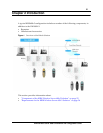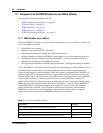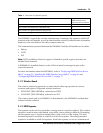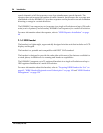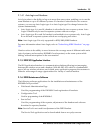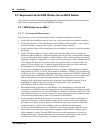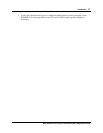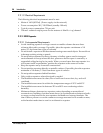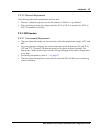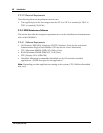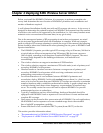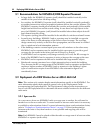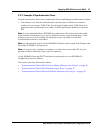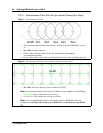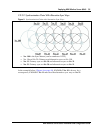
28 Introduction
14117800, Ed.2.6
2.2.1.2 Electrical Requirements
The following electrical requirements must be met:
• Mains of LAN (802.3af). (Power supply via the network)
• Power consumption: 24V/130-220mA (standby 180 mA)
• Typical power consumption: 7W per unit
• The max. radiated output power for the antenna is 10mW e.i.r.p/channel.
2.2.2 KIRK Repeater
2.2.2.1 Environmental Requirements
• Avoid installing repeaters on large concrete or marble columns because these
columns affect radio coverage. If possible, place the repeater a minimum of 1.0
meter/3.3 feet from these types of columns.
• Do not install a repeater with the antenna housings near metal objects. Be careful not
to damage existing wiring or panels.
• Do not position repeaters in ducts, plenums, or hollow spaces used to transport
environmental air except where the duct, plenum or hollow space is created by a
suspended ceiling having lay-in panels. When you need more than one repeater in a
cell to meet traffic requirements, position the repeaters at the same cell center.
• Keep the repeater away from steel constructions.
• Do not position repeaters directly on metallic surfaces. If possible, place the repeater a
minimum of 1.0 meter/3.3 feet from these types of surfaces.
• Do not position repeaters behind furniture.
• Only position repeaters where the signal is needed.
• The installation area must be clean, free of traffic and excess dust, dry, and well
ventilated.
• The installation area must be within the temperature ranges of 10°C and 40°C.
• The installation area must be between 20% and 80% non-condensing relative
humidity.
• Minimum distance between two repeaters varies depending on material and
construction of buildings, but there must always be synchronization chains and radio
coverage overlap between the two repeaters and handover between handsets. The
time it takes a person to cross the common coverage area must be 10 seconds or more,
as the handset needs time to scan for an alternative repeater.




